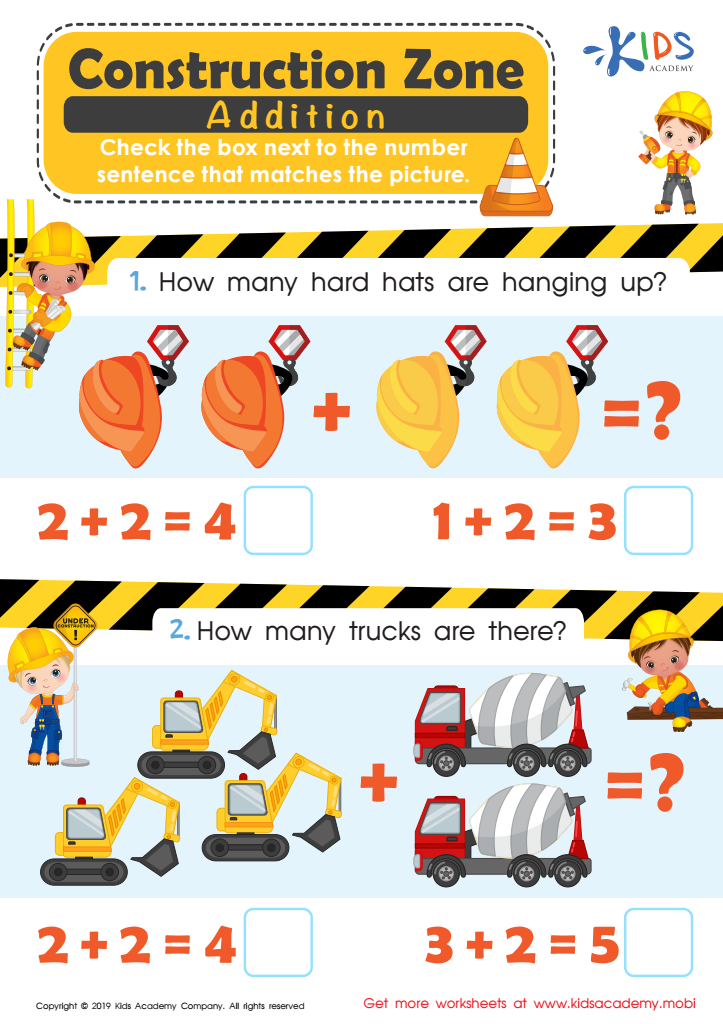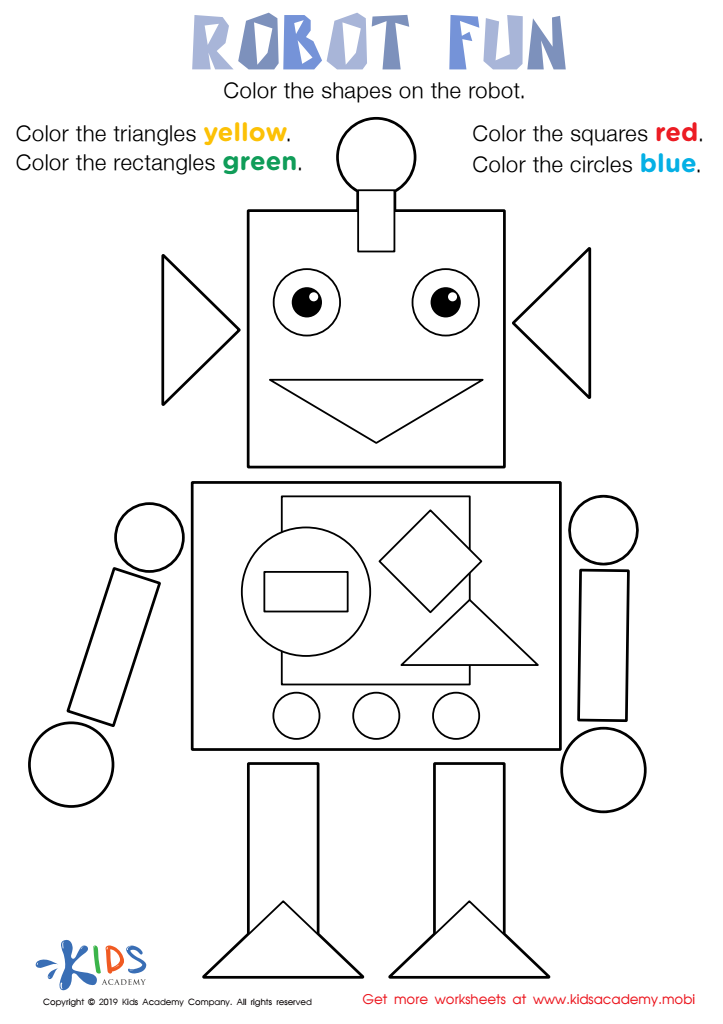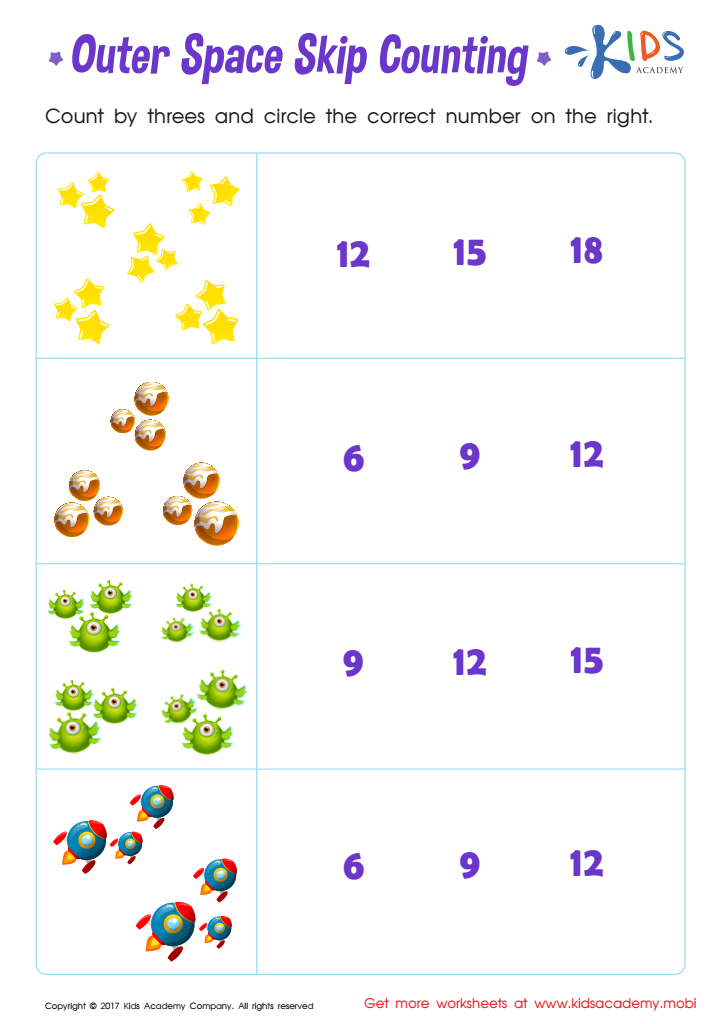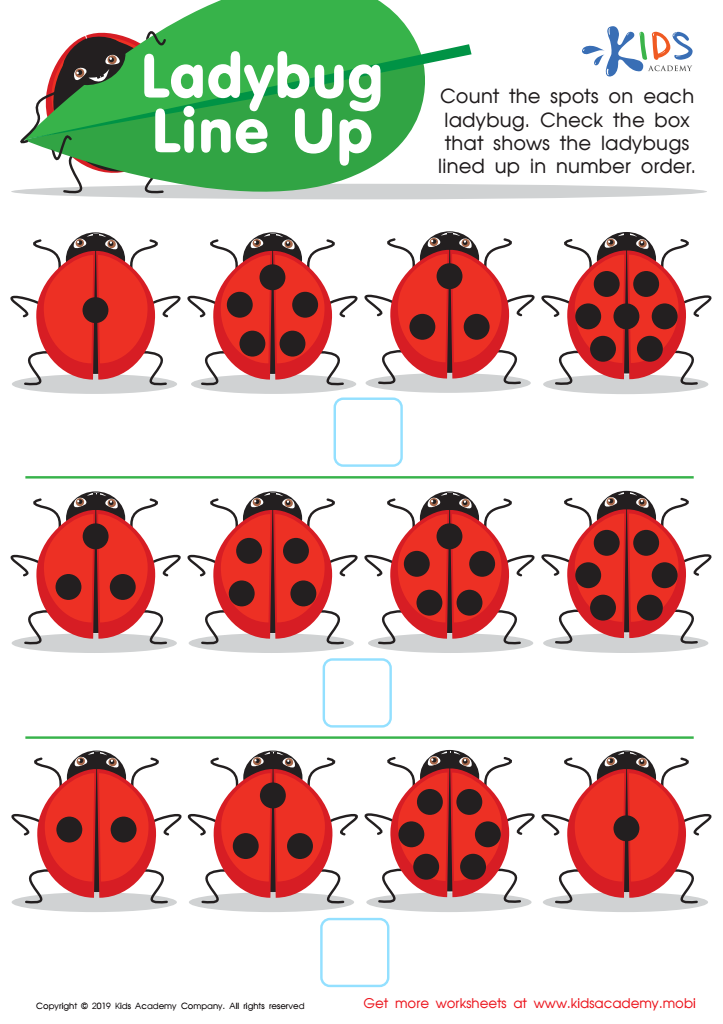Improving concentration Easy Math Worksheets for Ages 4-6
4 filtered results
-
From - To
Improve your child's focus and math skills with our easy math worksheets designed for ages 4-6. Our activities blend fun with learning, helping young minds develop concentration through engaging exercises. Each worksheet is crafted to reinforce basic math concepts while gradually boosting attention spans. Perfect for preschool and kindergarten children, our resources offer colorful and interactive tasks that transform learning into an enjoyable experience. Watch your little one excel in mathematics and enhance their ability to concentrate. Begin the journey to better focus and foundational math understanding with our expertly designed worksheets today.


Construction Zone Addition Worksheet


Robot Fun Worksheet


Skip Counting by 3s: Outer Space Skip Counting Printable


Ladybug Line Up Worksheet
Improving concentration in early math for ages 4-6 is crucial for foundational development and future academic success, making it a matter of concern for both parents and teachers. At this young age, children are highly impressionable and are just beginning to develop their cognitive, motor, and social skills. Math activities, which include counting, basic arithmetic, and pattern recognition, help sharpen their concentration and problem-solving abilities.
Firstly, mastering early math concepts fosters a child's confidence. When they successfully grasp basic math skills, it boosts their self-esteem and encourages a positive attitude toward learning. Concentration-enhancing activities, like puzzles and simple addition and subtraction, train young minds to focus longer, which is a skill applicable in a wide range of academic and real-life situations.
Secondly, strong concentration in math lays a vital cognitive foundation. The ability to concentrate bolsters memory, attention span, and overall cognitive development. This foundation is essential for tackling more complex subjects down the line, including advanced math, reading comprehension, and critical thinking tasks.
Lastly, children who develop good concentration skills in early math are better equipped to handle classroom settings where focused attention is required for longer periods. For both parents and teachers, recording progress and celebrating successes in math can foster an intrinsic motivation to learn, creating lifelong benefits that extend far beyond early education.
 Assign to My Students
Assign to My Students





















